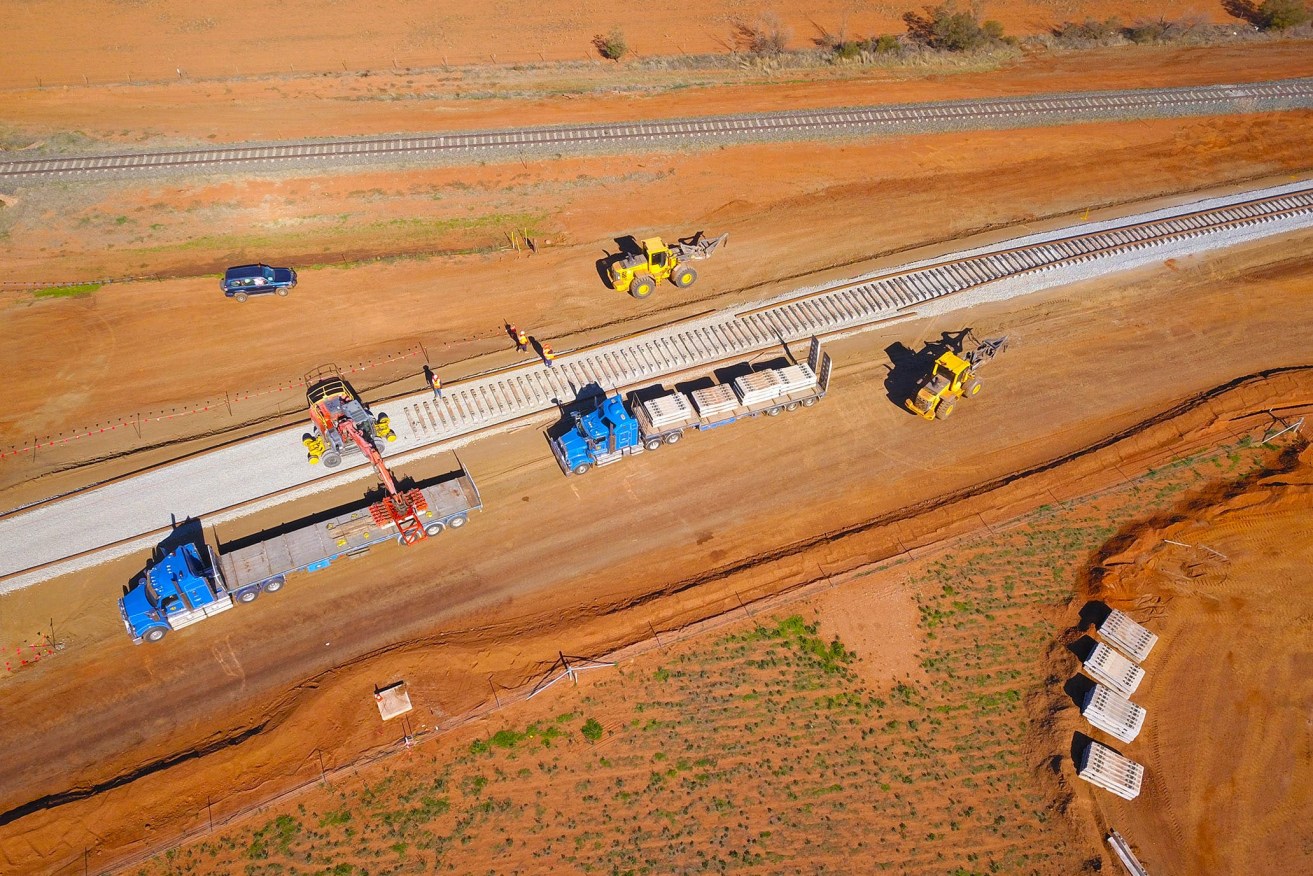Boost for inland rail as Morrison looks to fast-track job opportunities
The $10 billion freight rail line is among the projects given priority status by the Morrison Government in a bid to fast-track jobs on major infrastructure works.

Rail lines and sleepers being laid in Parkes, NSW, for the North West Connection of the Inland Rail project. (Photo: Australian Rail Track Corporation)
Inland rail from Melbourne to Brisbane and a second underwater power cable to Tasmania are among projects given priority status by the Commonwealth Government in a bid to fast-track jobs on major infrastructure works.
In a speech at the National Press Club today, the Prime Minister outlined more details of the Government’s JobMaker plan, including increased spending on infrastructure and major projects.
Scott Morrison announced the plan last month, saying its purpose would be to get Australian businesses “out of ICU” after coronavirus restrictions led to many taking significant hits to their bottom lines and relying on the Government’s JobKeeper scheme to stay afloat.
That includes a priority list of 15 major projects to be fast-tracked under an agreement by the Commonwealth, states and territories to speed up the approval process.
It is a decision that would support “over 66,000 direct and indirect jobs”, Morrison told the Committee for Economic Development of Australia (CEDA) at its State of the Nation Conference.
“Under our new approach, this investment, and most importantly these jobs, will be brought to market earlier by targeting a 50 per cent reduction in Commonwealth assessment and approval times for major projects, from an average of 3.5 years to 21 months,” he said
“Early examples of this approach are already paying dividends.
“Working with the New South Wales Government, we are on track to complete Commonwealth assessment and approval for Snowy 2.0 in under two years — unlocking over 2000 regional jobs.”
Morrison also outlined some of the 15 projects, including the $10 billion inland rail project from Melbourne to Brisbane, the Marinus Link between Tasmania and Victoria and the expansion of Olympic Dam in South Australia.
The list also includes emergency town water projects in New South Wales and a number of road, rail and iron ore projects in Western Australia.
The inland rail project has run into recent hurdles, with a review now considering an alternative route through southern Queensland. The Commonwealth has also, unexpectedly, funded a follow-up economic study by Ernst and Young, only months after using the consultants’ findings to argue to case for taxpayer funding.
Labor to call for voice to Parliament
The Opposition Leader also addressed the forum in Canberra, saying Labor has acted responsibly during the coronavirus crisis but has a different economic reform agenda.
Anthony Albanese said addressing climate change and recognising Indigenous Australians in the Constitution were two key policy priorities for Labor.
Last week, the Minister for Indigenous Australians Ken Wyatt said it was unlikely Australians would vote on constitutional recognition for Aboriginal and Torres Strait Islander people before the next federal election.
But Albanese said Labor must create a First Nations voice to Parliament, consistent with the Uluru Statement from the Heart.
“Without that voice, we will never be truly democratic,” he argued
Albanese also declared Australia needed to have a “grown-up” conversation about climate change.
“The long, brutal fire season we endured is something we hope to never go through again — although hope will have little to do with it,” he said.
“Only preparation can help avert further tragedy.”
The Prime Minister also used his speech to announce $1.5 billion in funding for “small priority projects” in all states and territories.
“As part of this package, $1 billion will be allocated to priority projects which are shovel-ready, with $500 million reserved specifically to target road safety works,” he said.
Morrison said the latest funding meant the Government has brought forward or provided additional funding for infrastructure investment to the tune of just under $10 billion in the past eight months.
As well as the infrastructure approval and spending announcements, the Prime Minister outlined plans to speed up deregulation, arguing Australia had benefited from agile and flexible regulation practices during the coronavirus crisis.
-ABC – Georgia Hitch / Stephanie Dalzell












